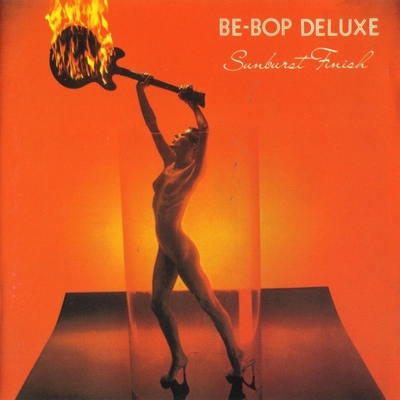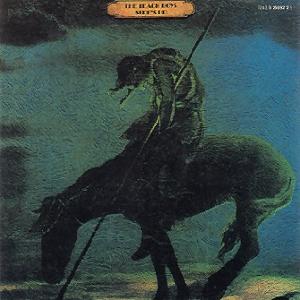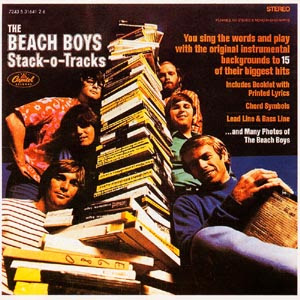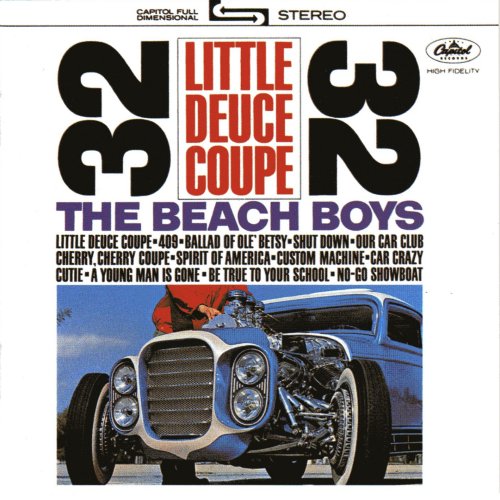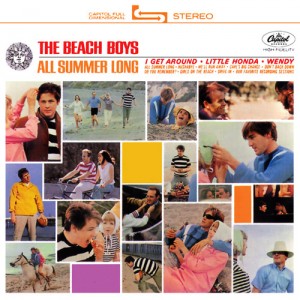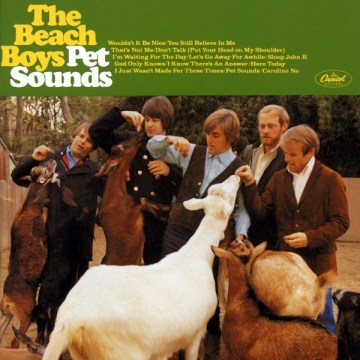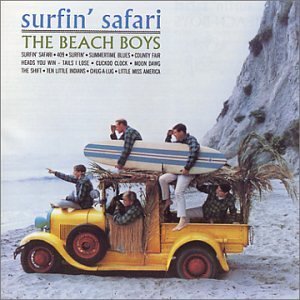Yay, it's the ever unreliable and prolific Lou Barlow, who is one of my favourite songwriters but I can't really work out why when so much of what he writes is so half-baked. I suppose that when he's on it, the stuff he writes is so great that it feels quite personal to the listener. I think maybe it's that day to day emotional subject matter that he trades in that makes it easy to connect to. However, that's when he can put the self-consciousness to one side, and that's not in truth that much of the time. The rest of the time he'll deliberately play out of tune, or stick some horrible noise over the songs, or make them hard or unpleasant to listen to in some other way. Another Collection of Home Recordings (1994) collecting various bits and pieces between 1991 - 1994 is a case in point. Besides the rather silly cover versions ('Run To You', 'Blonde in the Bleachers') there are a couple of lovely Barlow tunes that he comprehensively ruins on purpose. In many ways it's a great record, like all his earlier work that he made actively hard to listen to, because the tunes under the mess are so good, but it's also easy to dismiss it as the work of an audience baiting game-player. Unlike 2005's Emoh, which is an entirely different proposition. After the success of Barlow's side project The Folk Implosion's album One Part Lullaby, he clearly thought that it might be worth stripping out the mess and noise and let the songs stand for themselves and Emoh is a truly lovely album, whose songs are genuinely affecting and beautifully understated. I think some people think that his later work is lacking in character but for my money he really found himself with this record, after all, we're none of us teenagers any more. There will be loads more Barlow to come with Folk Implosion, Sebadoh and Sentridoh...


From one uncomfortable and unpredictable musical personality to another, more legendary, one, it's the great Syd Barrett. Now I'm no big fan of the old "drugs make art" argument and I'll happily use old Syd as an example - I have it on good authority (thanks mum, but I'll not bore you all to tears AGAIN with my Floyd-dropping stories - but cleverly I've done it again anyway, see?) that Barrett was a prodigiously talented but eccentrically bohemian person waaaay before he started taking the drugs and I sort of suspect that any records he made later in life would have been similar in nature but more focussed and probably better than the ones he made post getting totally fucked up. I use first post-Floyd album The Madcap Laughs (1970) as my example - this may be a peculiar and affected record with a singular point of view and style, but it is not I would argue so out of left field that it couldn't have been made by a person like Barrett without the acid breakdown. It's a brilliant album, and it is chock full of tunes that are fully realised, beautiful and tragic, alive with a compassionate sadness that I think idiots see as a kind of tribute to casualty without recognising that Barrett's mental complication might be a pathetically irrelevant side-issue, and worse a distraction from, what are simply wonderful, wonderful songs. There is certainly horror here but it's from a life lived on an artistic edge, not simply a tripped-out one, and there is so much beauty too that I see this stuff as a celebration of the glory of art, both musical and visual, and not merely a treatise from a psychic hinterland. Late compilation album Opel (1989) which collects various rejected takes and miscellaneous recordings that didn't make it onto Barrett's two proper studio albums, is really not much more than a way of contextualizing the development of many of the songs on The Madcap Laughs and Barrett and although interesting in its own right it really does feel like a bunch of random stuff stuck together for avid fans to sate their maniac interest. I can't help but feel that the people who are most obsessively interested in Barrett are probably the people who understand him the least.


After that wilful eccentricity it's soundtrack composer extraordinaire, the none more English John Barry with his soundtrack to super-60's Brit-flick The Knack (And How To Get It) (1965). Now, this is a great film, caught somewhere between miserabalist kitchen sink drama and knockabout saucy stuff. And it's got the luscious Rita Tushingham and the mighty Ray "Big Deal" Brooks in it. Barry's soundtrack is suitably jaunty and its vintage is absolutely unmistakable. Few things sound more like the 60's than this lightweight (but genius) nonsense. It's got the all important sweeping strings and glockenspiel combo, the ever tinkling hi-hat and that all-pervasive sense that something is not quite right. It's perfect for the movie and of course awesome in its own right.

Right, difficult one now, it's Julianna Barwick's The Magic Place (2010). This is not a record that would be to everyone's taste, skating dangerously close as it does to a number of divisive things: Wyndham Hill style New Age, Cocteau Twins at their most precious, found sound and field recordings, hippy rip-offs of "native" vocal techniques. What's amazing though is that Barwick is doing something truly remarkable that steers shy of all of those things and is quite unique despite not using any particularly innovative ideas. Almost entirely constructed from loops of her own wordless vocals, all drenched in cavernous reverb, these are pieces of music that sound like they're coming from deep inside yourself, or from the core of the earth, or from the furthest reaches of space. All a bit silly sounding I know, but this is bizarrely powerful, even elemental, stuff that moves sinuously into your mind and drifts through it leaving the weirdest traces behind as it goes. Very occasional piano and percussion add a grounding to the swirling vocals and give it a sense of propulsion, but in all honesty, the whole record is like Apollo-era Eno times ten, and that is a really, really good thing. You know what, it's an aural equivalent of when the Nazis open the Ark of the Covenant and all the beautiful angels come out (before they go all bad-ass).

And speaking of women being all ethereal, it's time for a couple of records by an act I truly love, Natasha Khan's kohl-eyelinered Bat for Lashes. First album Fur and Gold (2006) is a marvellous bit of creepy twelve-sided dice kind of fantastical rock. In many ways it recalls the D&D stylings of Mary Timony's post-Helium records and I'm proud to say I'm one of the six or seven people in the world who think that those are awesome records too. But Natasha Khan's voice is a far more impressive and remarkable instrument than Timony's, a truly lovely, controlled sound and Fur and Gold I think is a genuinely exciting record because it was so wholly unexpected, appearing in the midst of a thoroughly stolid British indie scene, like Gandalf blasting a magical path through hordes of orcs. All joking aside (and apparently, hard to believe though it is, Natasha Khan herself takes her work very seriously indeed) the album really does create a very wholly realised crepuscular atmosphere, all moving shadows and strange shapes in the distance, the mystical lyrics being true to the genuine spirit of fairy tales in that they're spooky, unsettling. The video for 'What's a Girl To Do' sums up the feel of the record brilliantly - if you've not seen it, I heartily recommend it - BMX tricksters with massive animal heads riding forest roads in the dead of night, it's great stuff. When Khan occasionally pauses the fantasy atmosphere, she does so with real grace, and the couple of straightforward ballads on the album are simply beautiful ('Sad Eyes' is really fabulous). Second album Two Suns (2009) is less successful I think because Khan really tries too hard to create a kind of hermetically sealed world for her work, and it ends up seeming all faintly ridiculous, overblown. There are some great spooked up songs here, two absolutely heartbreaking slow tunes ('Moon and Moon' gets me every time) and maybe the best song she's written so far ('Siren Song') but the big stuff ('Peace of Mind') is no match for the big stuff on Fur and Gold ('I Saw a Light') because it doesn't have the same out-of-nowhere, guileless thrill. It's still a really fine album but it suffers in comparison to its predecessor. I think there's a lot more interesting stuff still to come from her though.
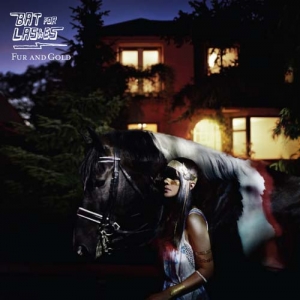
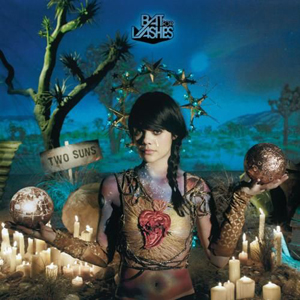
Oh no! Can the day really end with Mike Batt's astonishingly awful musical version of The Hunting of the Snark (1986)? Dear God, what a disappointment after a really, really good day. Oh well, if it must be, it must be. This may be the worst thing ever set down on a record. It's amazing. It truly has to be heard to be believed. I think Mike Batt may genuinely have thought that he was creating Jeff Wayne's War of the Worlds TO THE MAX. Although shit, at least War of the Worlds has the good grace to be insanely over the top. The Hunting of the Snark is just common or garden shit. Right, let's have a look, where Jeff Wayne scraped together Phil Lynott and RICHARD BURTON!! Mike Batt gets Julian Lennon and Captain Sensible, so far so bad, but he also got JOHNs HURT AND GIELGUD!!!!. And even yet, everything about The Hunting of the Snark screams out "amateur regional theatre" - it's a musical in its loosest sense, I mean, it does have music. Of sorts. The most dramatic bits here sound like off cuts of string sections from late Emerson, Lake & Palmer records, the rest sounds like Pilot. It's that bad, it sounds like Pilot. In fact, did Mike Batt have something to do with Pilot? I bet he did, it would explain everything. I mean, why even turn The Hunting of the Snark into a musical in the first place? It's such a non-idea, it's like something that someone on the Apprentice would come up with. And who's that singing with such heartfelt sincerity about "gaining on the Snark"? Why, is it...can it be...IT IS! It's Sir Cliff Richard. Jesus. Wept. But, hold on, what's that? It's ROGER DALTREY. I mean, what the hell is going on here?? Have I lost my mind. Batt clearly thought that he'd get everybody he could lay his hands on to out-do Jeff Wayne (I mean even Art effin Garfunkel is on this atomic pile of mediocrity) and get them to do their single most unimpressive performances ever recorded. And to cap it all off, nobody mention the fact that Deniece Williams, the only woman on the whole record, plays "The Beaver". Incidentally, to really illustrate exactly how bad this is, I'll just tell you that the "I'm gonna be snookering you tonight" song that acted as the theme tune to Jim Davidson shitfeast snooker quizshow 'Big Break' is from The Hunting of the Snark. Once again though, this is one that my mum picked up from the Oxfam shop so not only can I not get rid of it, I also can't slag it off. So I'll just finish by saying that it's brilliant.

Crumbs, we're really motoring so we'll be starting the 27 album Beach Boys marathon tomorrow afternoon. I thought it was a lot further off...










